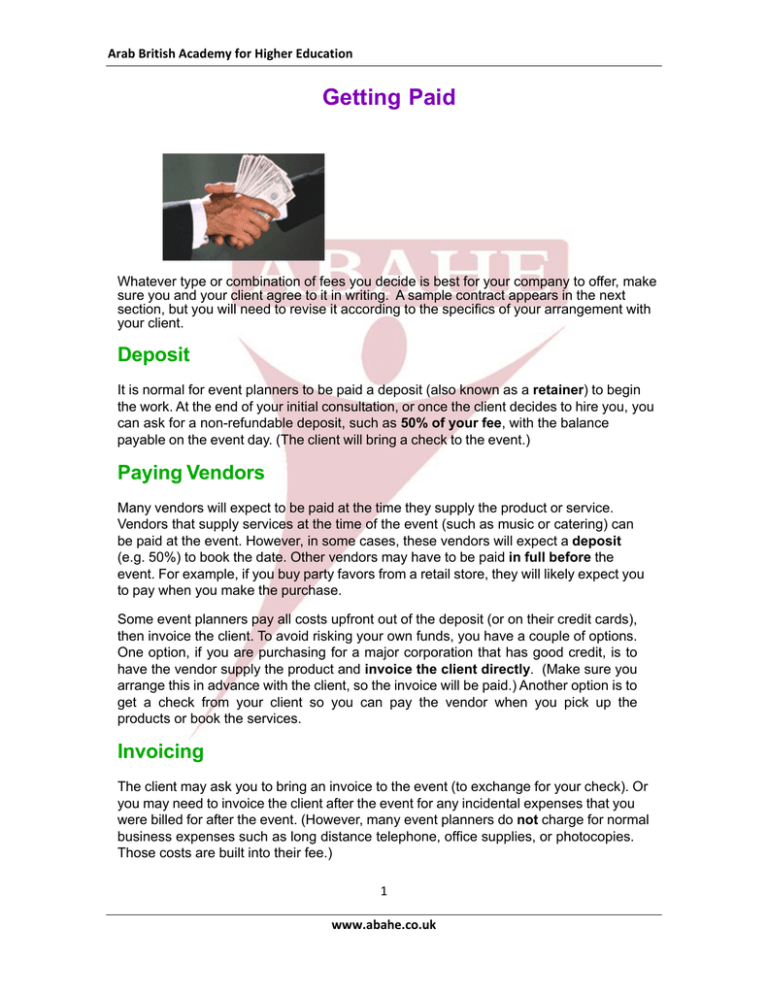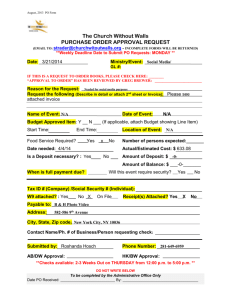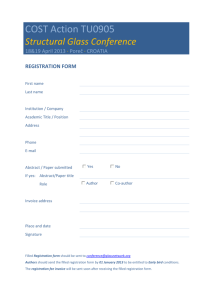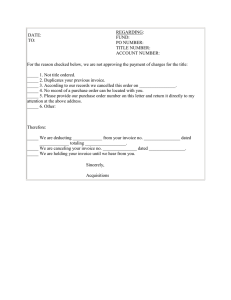
Arab British Academy for Higher Education Getting Paid
Whatever type or combination of fees you decide is best for your company to offer, make
sure you and your client agree to it in writing. A sample contract appears in the next
section, but you will need to revise it according to the specifics of your arrangement with
your client.
Deposit
It is normal for event planners to be paid a deposit (also known as a retainer) to begin
the work. At the end of your initial consultation, or once the client decides to hire you, you
can ask for a non-refundable deposit, such as 50% of your fee, with the balance
payable on the event day. (The client will bring a check to the event.)
Paying Vendors
Many vendors will expect to be paid at the time they supply the product or service.
Vendors that supply services at the time of the event (such as music or catering) can
be paid at the event. However, in some cases, these vendors will expect a deposit
(e.g. 50%) to book the date. Other vendors may have to be paid in full before the
event. For example, if you buy party favors from a retail store, they will likely expect you
to pay when you make the purchase.
Some event planners pay all costs upfront out of the deposit (or on their credit cards),
then invoice the client. To avoid risking your own funds, you have a couple of options.
One option, if you are purchasing for a major corporation that has good credit, is to
have the vendor supply the product and invoice the client directly. (Make sure you
arrange this in advance with the client, so the invoice will be paid.) Another option is to
get a check from your client so you can pay the vendor when you pick up the
products or book the services.
Invoicing
The client may ask you to bring an invoice to the event (to exchange for your check). Or
you may need to invoice the client after the event for any incidental expenses that you
were billed for after the event. (However, many event planners do not charge for normal
business expenses such as long distance telephone, office supplies, or photocopies.
Those costs are built into their fee.)
1 www.abahe.co.uk Arab British Academy for Higher Education Corporate clients are usually invoiced at the end of each project, or they can be
invoiced monthly if a project is ongoing. (For example, if you are planning a series of
events.) A challenge with invoicing on a monthly basis is that corporations normally
expect at least 30 days to pay, and some wait 60 or 90 days before putting a check in
the mail.
Your invoice should be on your letterhead and include the following (see the next page
for a sample).
• The client name and contact information
• The date of the invoice
• A purchase order number (if the client gave you one)
• Services you provided
• Any taxes payable
• Any expenses you have paid (also known as disbursements)
• The total amount due
• Terms of payment (e.g. “Payable upon receipt” or “Payable within 30 days”)
Sample Invoice
(On Your Letterhead)
INVOICE
DATE:
November 3, 2006
TO:
Carla Client
Public Relations Department
XYZ Corporation
2 www.abahe.co.uk Arab British Academy for Higher Education 123 Main
Street
RE:
Sunnyday, CA 90211
Event Planning Services for November 3 Open House
Project Fee (as per contract of Sept. 7, 2006)
$2,000.00
Tax on Project Fee (insert your own tax rate)
200.00
Expenses (receipts enclosed)
195.23
Supplies for information kits
Gift for Mayor
$146.44
$48.79
TOTAL
2,395.23
Less: Deposit
(1,000.00)
Total – Please pay this amount
$1,395.23
Terms:
Payable upon receipt.
3 www.abahe.co.uk Arab British Academy for Higher Education Thank you for your business.
4 www.abahe.co.uk Arab British Academy for Higher Education All Rights Reserved © Arab British Academy for Higher Education
5 www.abahe.co.uk





